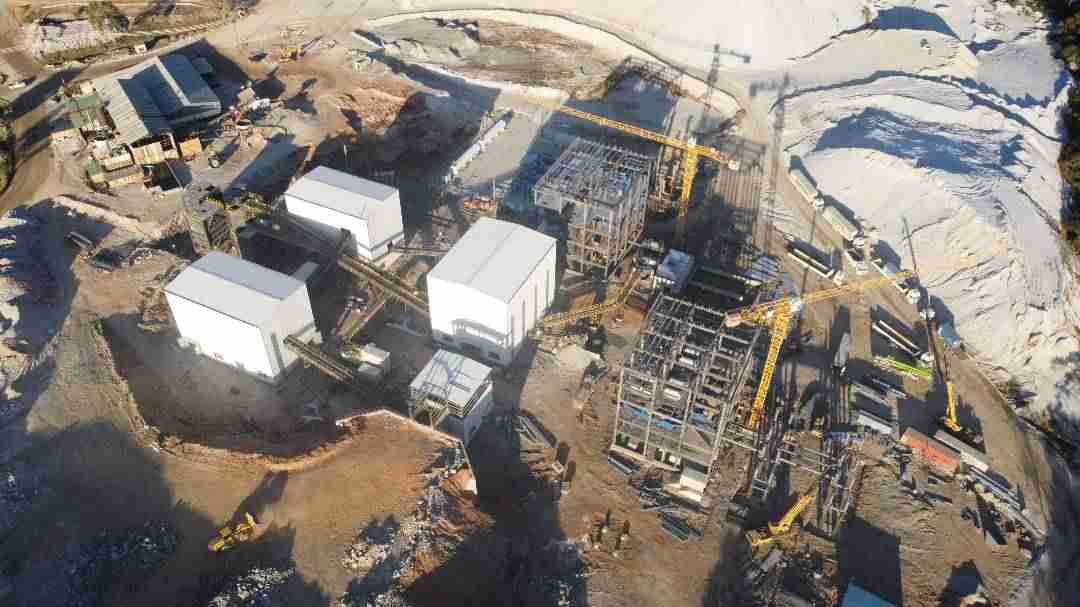
BIKITA Minerals, a lithium miner owned by Chinese firm Sinomine Resource Group, has completed and officially commenced trial productions on its two plants — gravity separation and flotation — at a cost of US$300 million.
“Bikita Minerals is pleased to announce that it has successfully completed and officially commenced trial productions on the new gravity separation plant (petalite) and flotation plant (spodumene),” the lithium miner said in a statement yesterday.
“The new gravity separation plant with an annual capacity of two million tonnes of petalite concentrate was initiated by the company through its own funds and raised capital, with construction work starting in 2022, based on the existing beneficiation plant at the Bikita Mine.”
The gravity separation plant, with a processing capacity of 220 tonnes per hour, is expected to produce 480 000 tonnes of petalite annually.
The newly constructed flotation plant also comes with an annual capacity of two million tonnes of spodumene concentrate.
The company said once the Bikita Minerals Lithium Mine expansion project reaches its production capacity, it is expected to produce 300 000 tonnes of high-quality chemical grade spodumene concentrate annually.
“Commencement of the beneficiation production lines will further enhance the company's lithium concentrate supply capability and future business performance. Bikita Minerals, under the new owners Sinomine Group, has invested over US$300 million towards plant expansion and exploration,” the statement further read.
The new plants will create an additional 1 000 jobs as the company projects to generate US$500 million from exports in 2023.
- The world bows to Messi
- Cristiano Ronaldo remains SILENT after great rival Lionel Messi shot Argentina to World Cup glory
- Rapper Drake reportedly lost $1 million on World Cup bet
- Bikita Minerals launches 2 giant plants
Keep Reading
Bikita Minerals employs 860 people.
According to its manager David Mwanza, the company expects to rake in revenues of US$600 million next year, with the figure expected to rise to US$800 million in 2025.
Sinomine acquired Bikita Minerals which was previously controlled by German investors through African Minerals Ltd for US$180 million in January last year.
Zimbabwe had budgeted for revenue of up to US$500 million from lithium exports this year. In September 2022, Bikita Minerals predicted that output would double between 2022 and 2031.
But with Bikita raising the scales, inflows from the subsector could be far higher than estimated.
There are around eight different lithium exploration and mining projects at different developmental stages in the country which include Arcadia Lithium Mine, Sabi Star Lithium, Zulu Lithium Project, Step Aside Lithium Project, Mirrorplex Lithium Project, Kamativi Lithium Project and Mutoko Lithium Private Limited.
Due to the mineral's importance as a crucial component in EV batteries at a time when EV sales throughout the world are surging, interest in lithium has increased.
According to statistics, Zimbabwe produced 1 200 tonnes of lithium in 2021, making it the world's sixth-largest producer of the mineral after Brazil, which produced 1 900 tonnes.
Other major producers are Argentina (6 200 tonnes), China (14 000 tonnes), Chile (26 000 tonnes), and Australia, which produced 55 000 tonnes.










